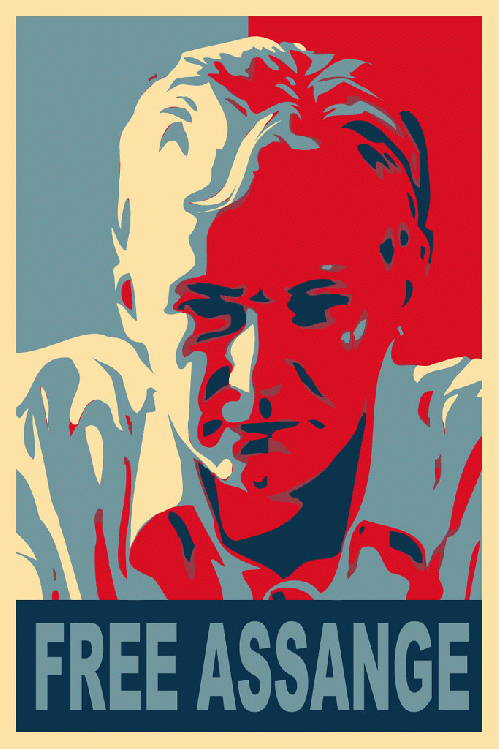From Truthout
As the father and brother of imprisoned journalist Julian Assange wrapped up their month long "Home Run for Julian" tour through 16 U.S. cities, the government's principal witness against Assange recanted his testimony. Sigurdur Ingi Thordarson, whom the Department of Justice (DOJ) had recruited to build its case against Assange, admitted to the Icelandic newspaper Stundin that he fabricated key allegations in the indictment in return for immunity from prosecution by the FBI in a quid pro quo.
The admissions of Thordarson that he lied about Assange being a hacker threatens to unravel the government's case. "The factual basis for this case has completely fallen apart," Assange attorney Jennifer Robinson told Democracy Now!
By enlisting Thordarson to construct a case against Assange, the U.S. government "made a deal with the devil," constitutional law scholar Stephen Rohde stated during the tour's June 28 Los Angeles panel discussion, in which I also participated.
The superseding indictment that the Trump administration filed in May 2019 charged that Assange and WikiLeaks obtained and published classified material provided by Army intelligence analyst Chelsea Manning, in violation of the Espionage Act. Those charges carry 170 years in prison. But they were vulnerable to attack because of what is called the "New York Times problem."
The "New York Times Problem"No journalist or media outlet has ever been prosecuted under the Espionage Act for publishing truthful information. The First Amendment allows journalists to publish material that was illegally obtained by a third person if it is a matter of public concern. The U.S. government has never prosecuted a journalist or newspaper for publishing classified information, which constitutes an essential tool of journalism.
Indeed, the Obama administration, which prosecuted more whistleblowers under the Espionage Act than all prior presidents combined, declined to indict Assange. WikiLeaks did what The New York Times, The Guardian, Der Spiegel, Le Monde and El Paàs also did. It published articles based on documents Manning had leaked. The Obama administration feared establishing "a precedent that could chill investigative reporting about national security matters by treating it as a crime," according to Charlie Savage of The New York Times. Obama could not distinguish between what WikiLeaks did and what news media organizations like the Times "do in soliciting and publishing information they obtain that the government wants to keep secret," Savage wrote. This is the "New York Times problem."
In light of potential difficulties in convicting Assange as a journalist, the Trump administration filed a second superseding indictment in June 2020, based on Thordarson's allegations. It aimed to shore up the hacking count under the Computer Fraud and Abuse Act charged in Trump's original indictment. Thordarson said Assange instructed him to commit computer intrusion or hacking in Iceland.
If U.S. prosecutors could portray Assange as a hacker instead of a journalist, they could get around the "New York Times problem." But now that Thordarson has recanted his testimony, the hacking charge unravels.
Notwithstanding the Obama-Biden administration's refusal to charge Assange, President Joe Biden has refused to dismiss Trump's appeal of the British judge's denial of extradition of Assange to the United States. Magistrate Vanessa Baraitser denied extradition on humanitarian grounds. She ruled that the U.S. prison system was unable to protect Assange from committing suicide since he would be placed in solitary confinement with onerous conditions, although she accepted the Trump administration's other contentions. Trump appealed the denial of extradition and Biden is continuing that appeal, even though the U.K.'s High Court has not yet decided whether it will even allow the U.S. government permission to appeal. Meanwhile, Assange remains incarcerated in London's maximum security Belmarsh Prison.
Revelations of U.S. War CrimesSo why are the revelations by Assange and WikiLeaks so threatening to the U.S. government?
In 2010 and 2011, WikiLeaks published evidence of war crimes that the U.S. military had committed in Iraq, Afghanistan and Guanta'namo. That is the basis for 17 charges against Assange under the Espionage Act. Manning provided the documents to WikiLeaks after she tried in vain to enlist her chain of command to investigate the evidence of torture and atrocities that she had uncovered.
(Note: You can view every article as one long page if you sign up as an Advocate Member, or higher).






